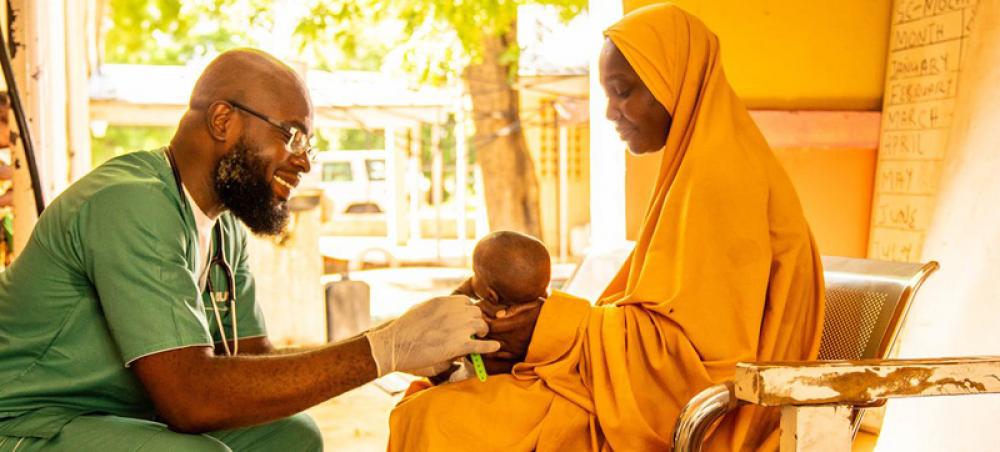Just Earth News | @justearthnews | 29 Aug 2024, 07:02 am Print

A baby is treated at a health centre in Nigeria. Photo Courtesy: UNOCHA/Adedeji Ademigbuji
Nigeria received 10,000 doses of mpox vaccines on Tuesday, becoming the first African country to obtain vaccines aimed at combating the spread of the new strain of mpox virus.
On 14 August 2024, the chief of the World Health Organization (WHO) declared the rise of mpox, formerly monkeypox, a public health emergency of international concern (PHEIC). Following his announcement, the chief, Tedros Adhanom Ghebreyesus, said he was working with partners to facilitate equitable access to vaccines.
The United States government has donated the Jynneos (MVA) vaccine to Nigeria, and it is set to be distributed in five of the country’s states where the most mpox cases have been detected.
Tweet URL
“We are pleased to receive this modest initial donation of the mpox vaccine which is safe and efficacious,” Nigeria’s Minister of Health, Muhammad Ali Pate said. “We will continue to strengthen surveillance and be vigilant to prevent and control mpox.”
Vaccine administration
The MVA vaccine will be given to 5,000 people most at risk of the virus in a two-dose schedule. This includes “close contacts of mpox cases and frontline healthcare workers, with a provision for reactive vaccination in other states as the need arises,” according to WHO’s regional office for Africa.
While waiting for the vaccines to be administered Nigeria’s National Agency for Food and Drug Administration and Control has approved the vaccine’s emergency use.
“The delivery of the mpox vaccines to Nigeria not only constitutes a crucial addition to the ongoing measures to halt the virus and protect health [but] it’s also a clear demonstration of international solidarity in the face of global public health emergencies,” said Dr. Matshidiso Moeti, WHO Regional Director of Africa.
Gaps in vaccine access
WHO’s Africa office says “serious gaps in mpox vaccine access” remain in Africa.
The organization is working with countries and manufacturers to increase access to the needed vaccines.
Further, WHO is collaborating with partners including the UN Children’s Fund (UNICEF) and others to “enable donations from countries with existing stockpiles.”
The partners are also developing a “donation scheme” to ensure the limited vaccines are used in areas where it is most needed.
WHO’s Africa office is assisting the Nigerian Government to improve “surveillance and contact tracing, laboratory capacity, risk communication, and community engagement” as the country has had 786 suspected mpox cases and 39 confirmed cases as of 10 August 2024.
Health officials are also implementing early case detection and diagnostics, as well as increasing cross-border surveillance, notably at main points of entry throughout the country.
- Ukraine’s health system under fire: Attacks spike 20% in 2025, WHO warns
- A dog’s loving lick turned deadly — She woke up without her limbs
- Scientists reveal how exercise could protect your brain from Alzheimer’s
- The cure exists — So why are Cataract patients still going blind?
- New hybrid Mpox strain surfaces in UK and India — WHO sounds global alert





-1763561110.jpg)
